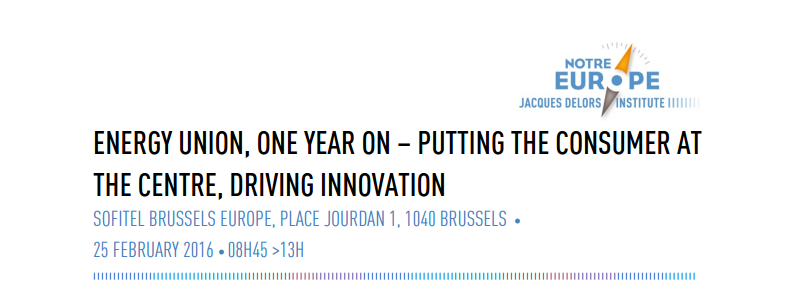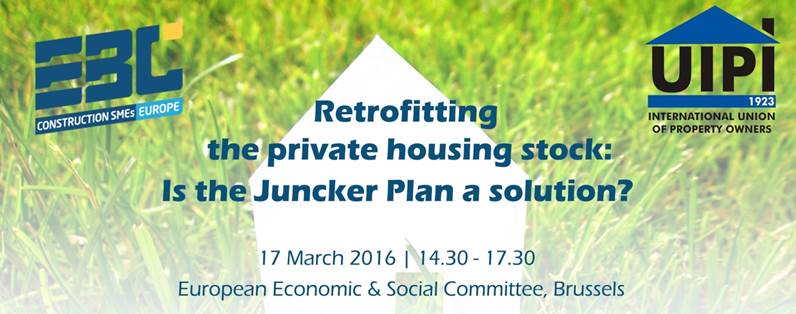
EU ENERGY INFRASTRUCTURE MASTER CLASS - 'Building Europe’s Energy Future'
Date
Links
Section
Event Location
Event Description
The European institutions recently adopted the so-called Energy Infrastructure Regulation (“EIR”).
While this long awaited piece of legislation does bring about a number of positive changes, it also unfortunately sometimes misses the mark on a number of items. Incumbent Transmission System Operators (“TSO”) may well find their ownership and operation monopolies challenged.
The EIR seems to open up the market to new entrants by allowing third parties to promote their infrastructure projects and present them in the hopes of being awarded the coveted status of Project of Common Interest (“PCI”). Indeed, PCIs enjoy fast-track permitting procedures that Member States must establish to comply with the EIR and these projects are also eligible for certain reserved European funding.
However, this welcomed effort lacks somewhat in precision so that many of the initiatives presented in the EIR will face serious difficulties when they are implemented in practice. The EIR does allow third party project promoters to compete with TSOs, but it fails to specify who will be responsible for ultimate ownership and/or operation of the projects once completed: will the projects have to be endorsed by the TSOs, will the latter be forced to take responsibility, will third party promoters be able to stay involved beyond construction?
The process by which projects are selected to become PCIs is, to say the least, not clear: according to some, projects must go through ENTSO-E’s Ten-Year Network Development Plan (“TYNDP”) procedure, according to others, projects must go through regional groups and their recognition as PCI automatically affords them inclusion into ENTSO-E’s TYNDP. The current text of the EIR mentions both procedures without clearly reconciling them so that one might still consider to apply through both. It will be essential to have clarity and certainty on who is the effective decision-making authority. Nevertheless, the EIR is a much welcomed initiative taken by the European Commission and some adjustments will ensure this new instrument becomes one of the most important ones in the EU Energy Policy.
The Claeys&Casteels Masterclass will examine these uncertainties and the practical implementation of the EIR as well as other related issues, such as the implication for the European internal energy market. The best practioners of the trade will be available to propose pragmatic solutions and exchange in interesting debates altogether with the students.
Don’t miss this unique opportunity!
Related Events

WORKSHOP

Building namely on a policy proposal made by the Jacques Delors Institute, the European Commission tabled its ‘Energy Union Strategy’ on February 25th 2015.

The American Chamber of Commerce to the European Union (AmCham EU)
is pleased to invite you to the launch of a new study
When: Thurs. 14 January, 10.30
Where: European Parliament press room, PHS building Room 0A50

Elisabetta Gardini MEP (IT, EPP) and GasNaturally will host a discussion on the complementarity of gas and renewables.
Hosted by Repsol, This half-day event will focus on the long-term future of Europe’s energy policy paying special attention to resource access and competitiveness. Is the EU ready to face increasingly pressing energy challenges coming up in the next few decades?
On 24th June, European Plastics Converters and PlasticsEurope will hold the conference “EU Investing in its future – Plastics construction solutions”.
The SESEC Conference in Brussels will give an insight on the next policy developments on Energy Efficiency, the energy cost evolutions and ready-to-use project results for the textile and clothing industry.
On 10-11 September, come and find out how electricity utilities today are reshaping our energy system for tomorrow: making it cleaner, more innovative and closer to customers.
PlasticsEurope will host a high level information day on Life Cycle Assessment (LCA) & Product Environmental Footprint (PEF), as part of the European Commission’s Energy Days organised across Europe during the EU Sustainable Energy Week (23-27 June).
We all know power technologies receive public money. But which technologies get how much, and why, has always been difficult to find out. Just how much do we know? What is the real impact of our choice of energy source on the taxpayer’s wallet?
----------- UPDATE: CHANGE OF START TIME --------------
Dear correspondents,
Members of the European Parliament, renewable industry associations and specialized lawyers will give their insight on the new RES objectives for 2030, the future of support schemes for renewable energies in Europe and regulatory risk for investments in RES power plants.
On 9 August 2013 the most populous US-state California with more than 37 million inhabitants stroke a new record: more than 27% of consumed electricity was generated by renewable energy sources.

























